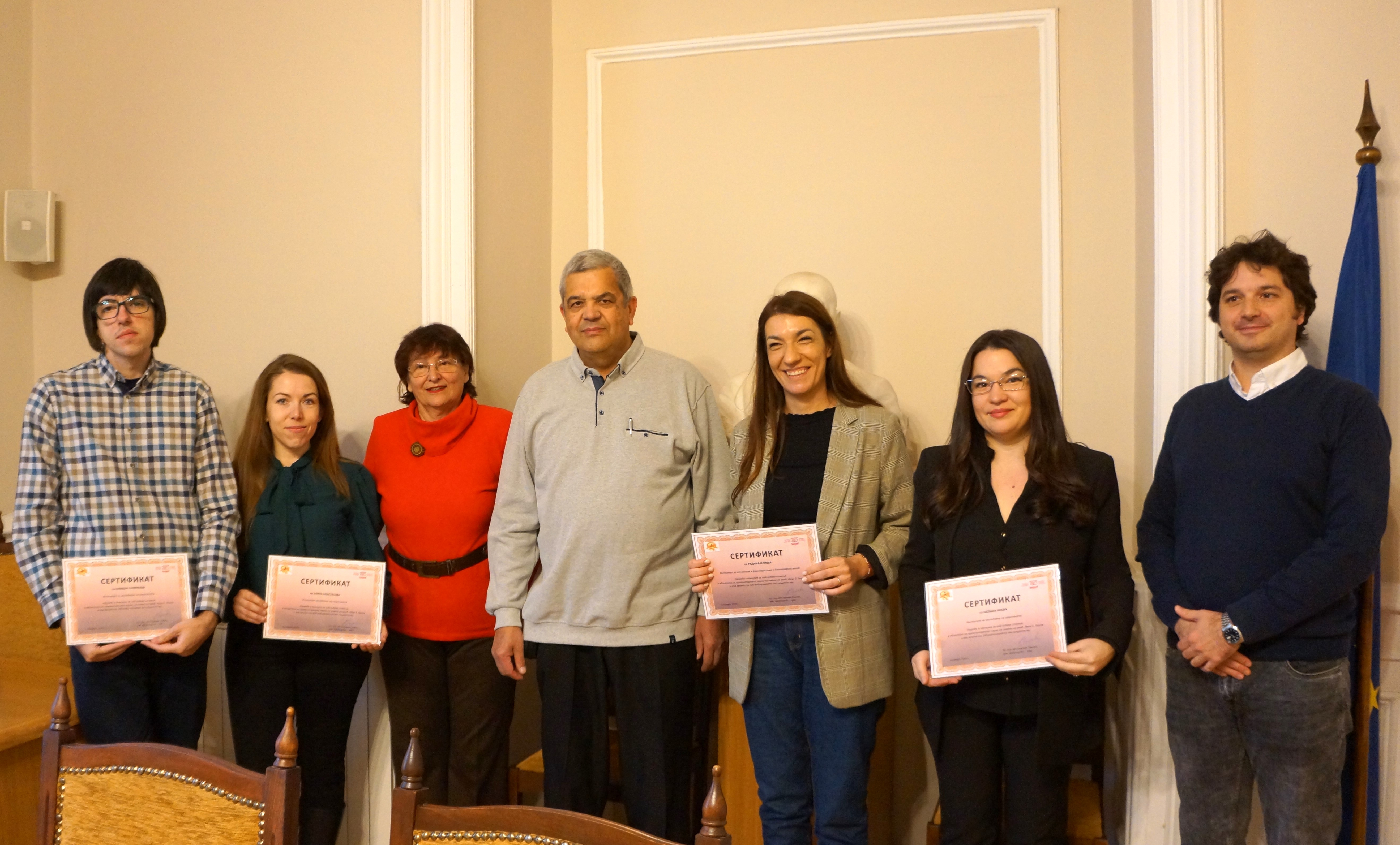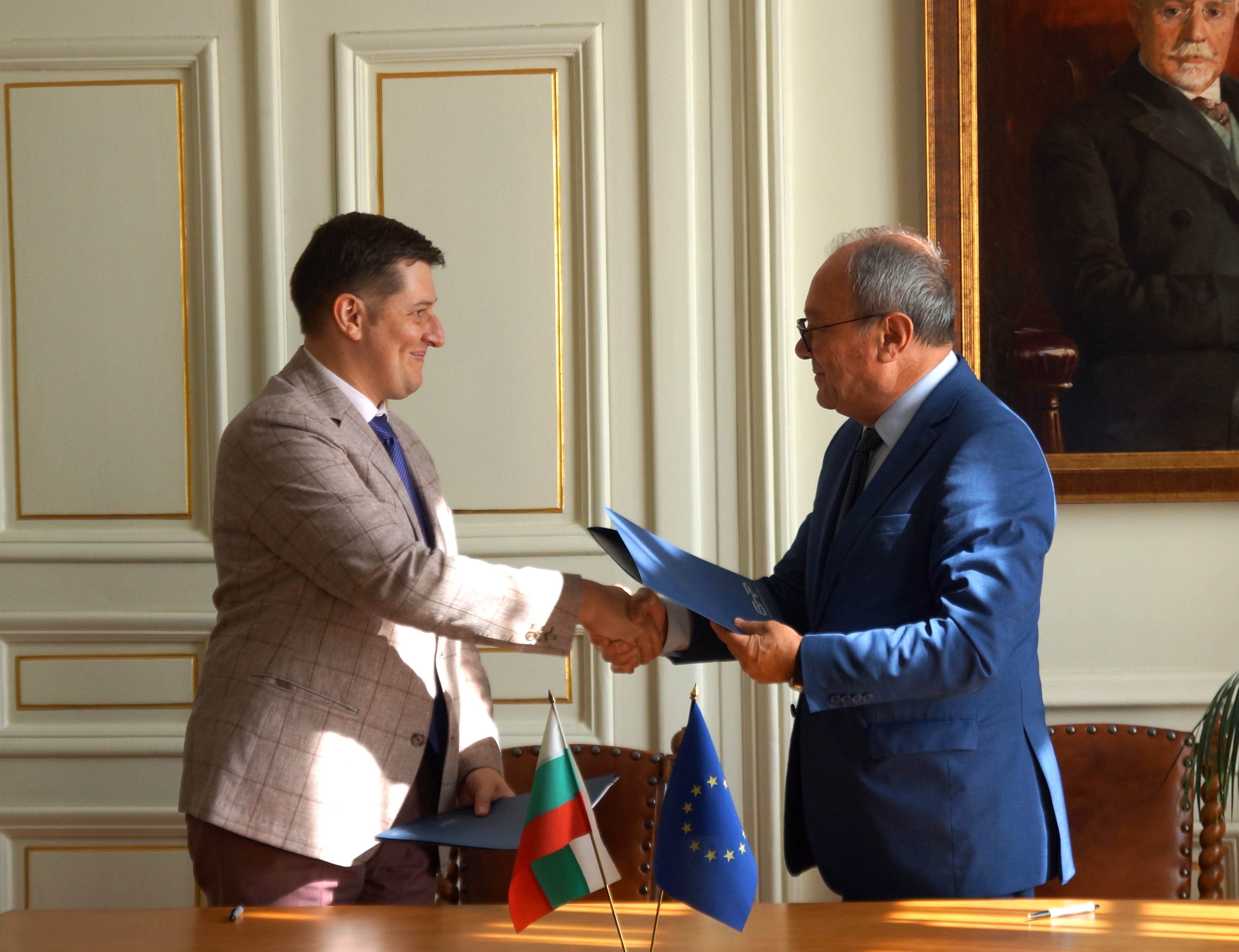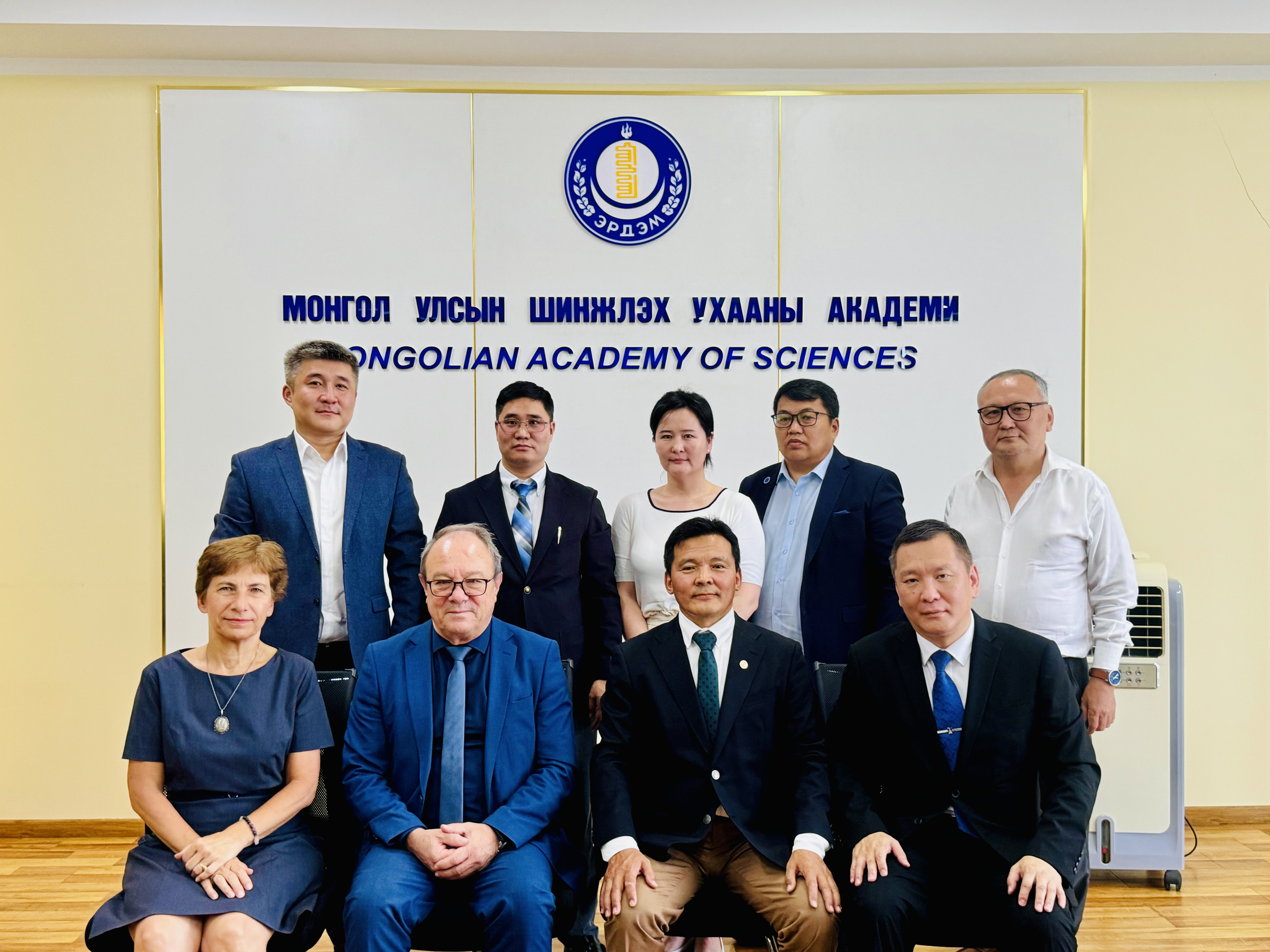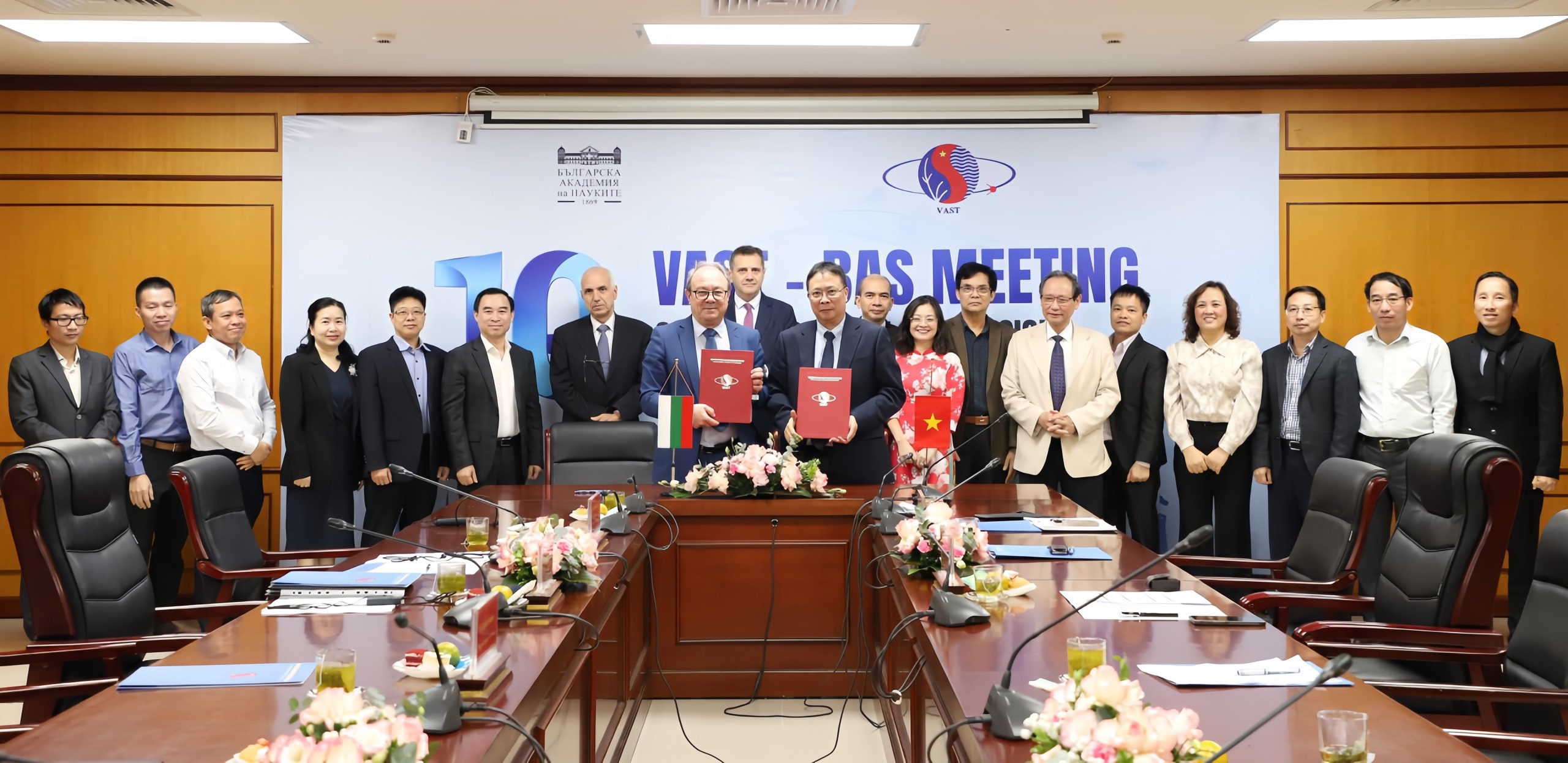 The exhibition “20 years Bulgaria in CERN” is dedicated to the celebration of the 20th anniversary of our country’s full membership in the organization. CERN Director-General Fabiola Gianotti opened the event in Sofia Tech Park (Incubator Building). The organizers are the Ministry of Education and Science, Sofia University “St. Kl. Ohridski ” and BAS.
The exhibition “20 years Bulgaria in CERN” is dedicated to the celebration of the 20th anniversary of our country’s full membership in the organization. CERN Director-General Fabiola Gianotti opened the event in Sofia Tech Park (Incubator Building). The organizers are the Ministry of Education and Science, Sofia University “St. Kl. Ohridski ” and BAS.
The exhibition is dedicated to the present and future of CERN, the Bulgarian presence in the various research and educational programs and the new perspectives for scientific cooperation and technological transfer for Bulgarian research institutions and Bulgarian business.
Bulgarian scientists actively participate in the research carried out in the organization, contributing to many new results. The Republic of Bulgaria has been a member of the European Organization for Nuclear Research – CERN since 1999. The Bulgarian Academy of Sciences participates in the work of CERN through the Institute for Nuclear Research and Nuclear Energy (INRNE) and the Institute of Robotics (IR) as well as a member of the Compact Muon Solenoid (CMS) experiment of The Large Hadron Collider. On the Bulgarian side, the Institute for Information and Communication Technologies – 630 CPU also participates in the global GRID network.
BAS is participating in the CMS project for the registration of received muons which plays a central role in the recovery of the observed events. During the period 1999 – 2018, INRNE participated in the design and installation of 125 cameras (out of 1000) with a resistance plate (RPC) of the CMS detector. BAS is actively involved in data analysis and in controlling the parameters of the CMS detector.
For the muon detector, a new type of GEM (Gas Electron Multiplier) and a new type of improved Resistive Plate Chambers (iRPC) are planned to be installed in the high pseudorapidity region. INRNE is involved in Phase 1 and Phase 2 of the project. During the first phase (2014 – 2018), the RE4/2 and RE4/3 cameras were tested and installed and 5 GEM test cameras were created and installed in CMS. During phase 2 of the project, 360 cameras GE1/1, GE2/1 and M0 will be manufactured. INRNE is involved in the design and construction of cooling systems for all cameras and in the design and installation of a radiation monitoring system with RADMON type detectors.
BAS participates in the organization of CERN related events such as the “Accelerator School – 2010” and “CERN-JINR School”, visits to the ECFA Committee: a committee to monitor the development of physics in CERN participating countries and events with students and educators from Bulgaria – educators’ lectures at CERN and classes with students “masterclass” on CERN topics.
The program of the exhibition, which will continue until 28 November, includes lectures (from 11:00 and 15:00) on current topics of CERN’s diverse research in the field of basic research and its applications.










